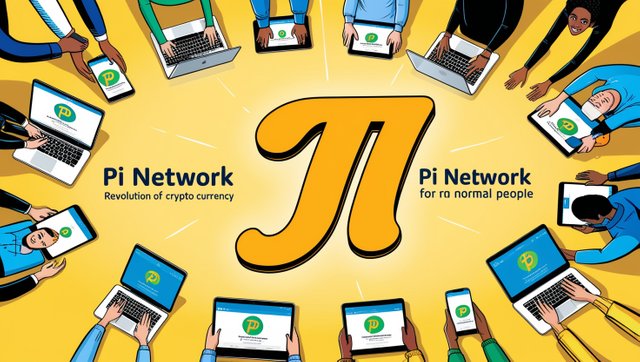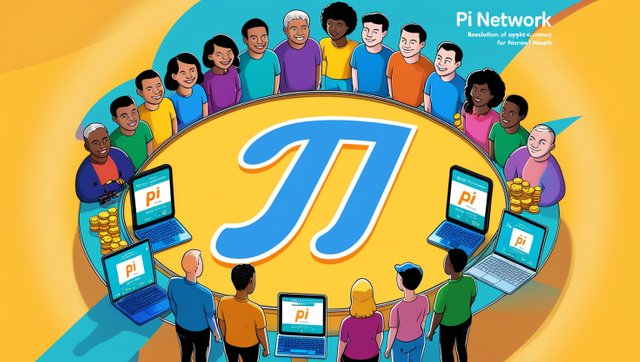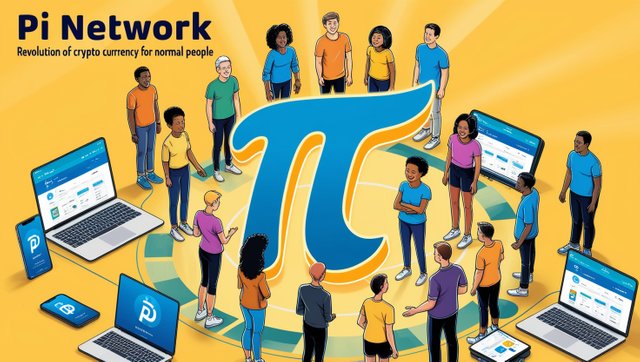Pi Network: Revolution of Crypto Currency for Normal People
Pi Network: Revolution of Crypto Currency for Normal People

Pi Network: Revolution of Crypto Currency for Normal People
Cryptocurrencies have transformed society’s money transfers with faster, safer, and more decentralised methods. But they have not found wide acceptance because there exist such problems as high energy consumption, technical issues, and the requirements for costly equipment. Pi Network, established in 2019 by a team of Stanford graduates, is determined to end this by designing an easy-to-transferable cryptocurrency platform.
What is Pi Network?
Pi Network is a decentralised cryptocurrency whose primary goal is to introduce smartphone-based mining of digital currency. Unlike other coins such as Bitcoin, the mining of Pi Network requires the usage of the Stellar Consensus Protocol (SCP). Thanks to this, the energy consumption is considerably lowered, and hence, Pi is non-harmful and is safe for the living environment.
Specifically, the Pi Network follows the model of inclusiveness. It enables people to get paid for Pi coins through a smartphone application without charging the phone’s battery or needing expertise. Such an approach has made Pi one of the largest blockchain communities with millions of users globally due to its democratised model.
Pi is a new digital currency developed by Stanford PhDs, with over 55 million members worldwide. To claim your Pi, follow this link https://minepi.com/dharmendrajony and use my username (dharmendrajony) as your invitation code.

How Does Pi Network Work?
Like most cryptocurrencies, mining Pi coins is relatively simple, the first step of which is to download the Pi Network app and create an account. Users then “mine” Pi by simply clicking on a button each day. Although this process is not in a way that may be associated with conventional mining, which entails solving various puzzles that require a cryptographic breakthrough, it is instrumental in fashioning {the} network, which makes it more secure and trustworthy.
The system operates on a four-tier structure:
1.Pioneer: An average user or a ‘galactic’ who actively digs Pi coins every single day.
2.Contributor: A person who assures protection of the network by ensuring the validity of transactions. 3.Ambassador: Members who persuade other people to become members of the network, receiving Pi coins.
4.Node: Each of these ranks works with the network software installed on their computers to lend an air of decentralisation to the system.
Pi is a new digital currency developed by Stanford PhDs, with over 55 million members worldwide. To claim your Pi, follow this link https://minepi.com/dharmendrajony and use my username (dharmendrajony) as your invitation code.
Why is Pi Network Unique?
Accessibility: Therefore, getting rid of the costly hardware means that anyone with a smartphone can mine with Pi Network.
Environmental Sustainability: It also has an energy-efficient protocol that reduces the environmental consequences usually attributed to conventional mining techniques.
Community-Driven: Pi Network heavily depends on its community, the value of tokens, as well as security, of the platform, rising with the number of active users.
Future Utility: In fact, though the Pi Network is still under development, the team behind the project developers plans on having a blockchain infrastructure that will allow for transactions, smart contracts, and perhaps even decentralised apps, or DApps.

Pi is a new digital currency developed by Stanford PhDs, with over 55 million members worldwide. To claim your Pi, follow this link https://minepi.com/dharmendrajony and use my username (dharmendrajony) as your invitation code.
Challenges and Criticisms
However, similar to any other unique idea, Pi Network has not been exempted from criticism. It has been criticised that its coins have no trade value presently because the coins are not yet marketed on major exchanges. Furthermore, it has heavily relied on user trust, which is not something that can be easily garnished, and coupled with the slow release of new features, the company's and the platform’s sustainability have been questioned. However, the disclosure policies of the team and increasing traffic in the project indicate signs for future success of the team.
The Road Ahead
Pi Network is still in the late development stage and in the preparation to launch a complete and independent mainnet. This phase will unlock the full potential and applicability of pi as a working currency, which users will be able to trade and use within the pi niche and externally.
In conclusion, Pi Network is a large-scale project that was designed to put cryptocurrency into the hands of common users and integrate blockchain into our lives. Despite this, it has some hurdles, has introduced innovative development, and has established the community base to be considered as one of the main competitors in terms of the digital currency market. If it succeeds in delivering that, only time will tell, but their ‘idea’ of unity and their ‘idea’ of sustainability are certainly noble.